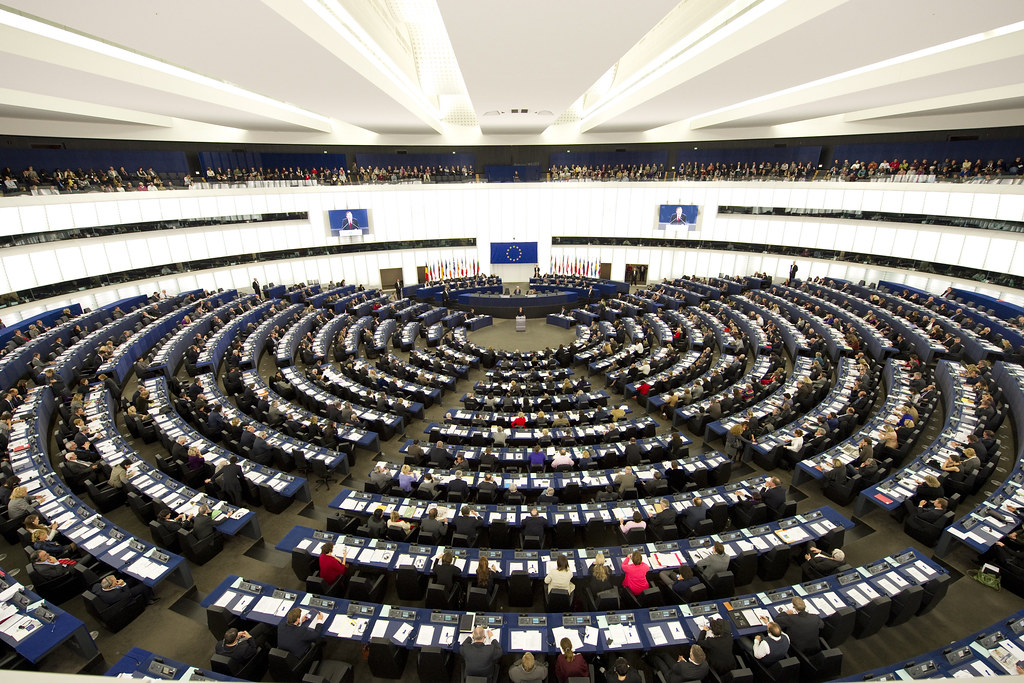
Spain is currently engaged in a month-long electoral marathon. The process started with the general election of 28 April and will end –at least for the moment– this coming Sunday, 26 May. There are so many issues in the country’s domestic politics that the elections to the European Parliament (EP) are not receiving the media attention they deserve, beyond the usual suspects amongst the intelligentsia. When they do, it is mostly to question if Eurosceptic forces in the EP will achieve a historical level of representation. This constant alarmism in the coverage of the European parliamentary elections –and the lack of a deeper debate on crucial problems faced by Europe’s citizens– is questionable. Clearly there are many issues on the table; however, what are the three key points to consider before Sunday?
(1) The elections to the EP are vital, but not in the way they are portrayed
In every discussion group it is said that these elections are vital for the future of European integration. This one has been the same and various media outlets published articles underlining this message, especially focusing on the increase of Eurosceptic members of the EP.
We already know that the public’s perception is that there is less at stake in the elections to the EP. Thus, turnout is lower, voters use the opportunity to protest or to signal their dissatisfaction with developments in their domestic political sphere, generally leading to an increase in the share of votes cast for smaller, eccentric or more extreme political parties. That is why the European parliamentary elections have been seen as second-line national elections since 1979 (the year when the first direct polls were held).
In 2019 the most important change is not the existence of Eurosceptic forces in the EP, since they are already there. It is that the centre-left and centre-right –the Socialists and Democrats and European People’s Party– will not enjoy the majority they have always had. According to Politico’s Poll of Polls, they will have around 314 seats, 60 short of a majority. However, adding the Liberals, Greens and other pro-European groups could lead to a total of around 475. Similarly, to these could also be added some other parties from the European United Left/European Nordic Green Left –such as Podemos–.
It is also important to underline that not necessarily all Eurosceptic political parties should be put in the same basket. It will be necessary to see how their group cohesion and voting patterns in the EP develop. The mainstream party groups tend to have a more cohesive legislative agenda than those at the extremes. It is important to bear in mind that actual policy-making goes far beyond mere discourse. So before putting them all in the same basket and ring the alarm bells, it will be necessary to see how they vote in the EP.
Having said that, an eye should be kept on the Salvini alliance (previously the Europe of Nations and Freedom). The greater the electoral support for and coordination among Eurosceptic parties, the better will they be able to block important EU procedures and make decision-making more cumbersome. That is why it is important to wait and see how group distribution works out.
(2) 2019’s EP will be a different place: one in which to negotiate
Like the parliaments of member states themselves, there will be negotiations to get legislation approved. Decision making in the European Parliament will take time. This is something new after decades of grand coalitions and consensus. It is likely that different issues will lead to different majorities.
It is also important to know that there will be voting in the EP and there will also be back-room deals and negotiations behind closed doors. This is should not necessarily be perceived as a bad thing. If the aim is to offer solutions to citizens’ problems, why not negotiate with their elected representatives? In any case, the time to take deals for granted is over. If the members of the Parliament do not welcome this development and fail to learn how to reach a consensus, the house will be by-passed by the Council.
It is important to underline that the elections to the EP are not just about the composition of the next Parliament but also about choosing the EU’s top jobs. Since the elections in 2014 Parliament has demanded a greater say in the appointment of the Commission President by putting forward ‘lead candidates’ (the so-called Spitzenkandidaten). A more fragmented Parliament makes the distribution of top jobs more unpredictable, increasing the possibility of a gridlock.
A grand coalition plus ALDE (together with En Marche) could be the best way to achieve a majority. In any case, the partnership will be on a test run very quickly in selecting a President for the European Commission. Member States nominate the Commission President with a qualified majority in the Council (55% of the Member States –or 16 of 28– and 65% of the Union’s total population). Then an absolute majority in the EP is required (376 of 751 seats). Achieving such a majority for a lead candidate will be the first test for consensus building in the EP.
(3) If a debate on more integration versus respecting/increasing national competences is needed, so be it
The EP must get out of its comfort zone and start debating existential issues. The key task is to find a way to discuss them without politicising and polarising Europe’s societies.
What are the main issues for European citizens?: inequality?, technological transformation and its impact on the job market?, the fear that this generation’s children will be worse off in life?, immigration?, or border controls?
Put them all be on the table for further debate, because that is how a real Parliament works. Let the European Parliament be ‘real’ and offer solutions to citizens’ problems. It is clear that after the epic failure of Brexit, Eurosceptics will not try to quit the Union but rather try to transform this most ambitious supranational project from the inside. The only way to face this is to offer citizens solutions and to rekindle their confidence in the Union and its capacity to decide. This can all be started anew in 2019’s new European Parliament.


